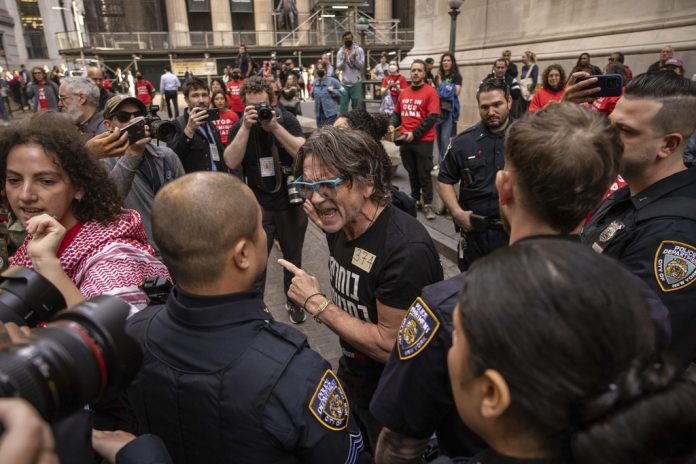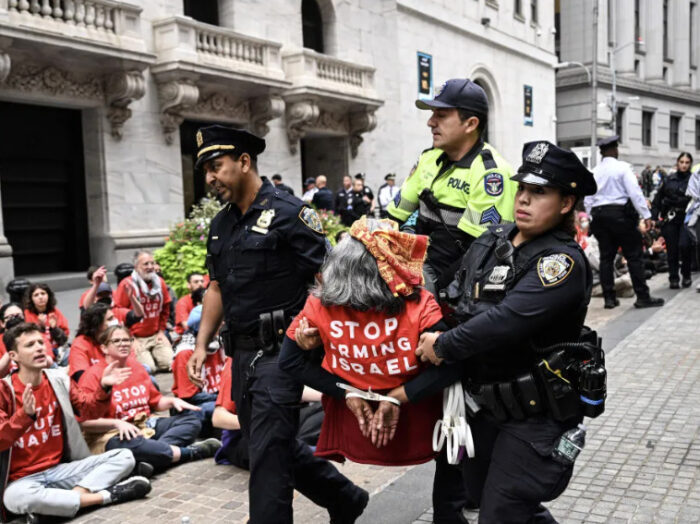
On Monday, October 9, more than 200 activists, including renowned artists Nan Goldin and Molly Crabapple, as well as filmmaker Laura Poitras, were arrested during a large-scale sit-in organized by Jewish Voice for Peace (JVP) outside the New York Stock Exchange. The protest, which coincided with Indigenous People’s Day, was part of a vocal opposition to U.S. military aid to Israel and its ongoing attacks on Gaza and Lebanon.
Around 500 demonstrators, many wearing red shirts emblazoned with slogans such as “Not In Our Name,” “Stop Arming Israel,” and “Fund FEMA Not Genocide,” took over Wall Street’s iconic tourist spots—the “Charging Bull” and “Fearless Girl” statues—draping them in red garments as a striking visual protest. Among the activists, 82-year-old MacArthur fellow Ros Petchesky and others chained themselves to the gates of the Stock Exchange, leading to arrests.

Nan Goldin, whose work has long engaged with themes of trauma and resistance, expressed pride in being arrested for the cause, stating, “I’m proud to be arrested with them if it helps amplify our message.” Goldin has been an outspoken critic of Israel’s occupation of Palestine, and her involvement in this protest underscores her ongoing commitment to politically engaged art and activism.
The demonstration was organized in response to the U.S. government’s announcement of deploying additional troops and missile systems to aid Israel in its military operations against Gaza. This came in the wake of the October 7 Hamas attack on Israel, which killed 1,200 people, and has been followed by a massive U.S. aid package to Israel, amounting to $17.9 billion. According to Brown University’s Costs of War project, this is the largest financial assistance to Israel since the U.S. began supporting its military operations.
As Israel’s airstrikes continue, the human toll in Gaza has soared. As of late September, 41,595 Palestinian lives have been lost according to Gaza’s health ministry, with cultural landmarks also suffering destruction. The protest highlighted not only the violence in Gaza but also broader U.S. military actions across the Middle East, including offensives in Yemen, which many activists see as part of the same geopolitical web of American-backed violence.
